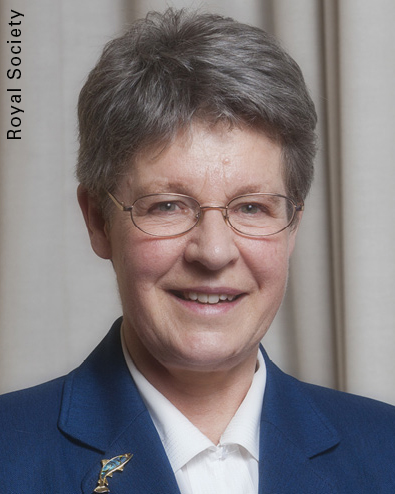Royal Astronomical Society Honors Stars of Astronomy
This post is adapted from a Royal Astronomical Society press release:
The Royal Astronomical Society has announced the 2021 winners of its medals and prizes, awarded to scientists around the world for significant achievement in the field of astronomy (also in geophysics but not included here). Their work encompasses topics as diverse as electricity in planetary atmospheres, waves in the solar atmosphere, the theory of planetary formation, cataloguing the stars in our galaxy, supernova explosions, the first image of a black hole, world-leading science communication, the evolution of galaxies, and precisely determining the properties of the universe.
Awards also recognize outstanding contributions in public engagement and service to the astronomy community.
The announcements were made at the Ordinary Meeting of the Society held on Friday, 8 January. The winners will be invited to collect their awards at the RAS National Astronomy Meeting in July.
The Society's highest honor is its Gold Medal, which can be awarded for any reason but usually recognizes lifetime achievement. Past winners include Albert Einstein, Edwin Hubble, Arthur Eddington and Stephen Hawking. It was first awarded in 1824; since 1964 two have been awarded each year: one for astronomy, and one for geophysics.
 This year the winner of the Gold Medal in astronomy is Professor Dame Jocelyn Bell Burnell of the University of Oxford, who was elected an Honorary Member of the AAS in 2015. Through an agreement between the AAS and the RAS, the recipient of the RAS Gold Medal in astronomy gives a plenary lecture at an AAS meeting, and the recipient of the AAS Henry Norris Russell Lectureship gives a plenary lecture at an RAS meeting.
This year the winner of the Gold Medal in astronomy is Professor Dame Jocelyn Bell Burnell of the University of Oxford, who was elected an Honorary Member of the AAS in 2015. Through an agreement between the AAS and the RAS, the recipient of the RAS Gold Medal in astronomy gives a plenary lecture at an AAS meeting, and the recipient of the AAS Henry Norris Russell Lectureship gives a plenary lecture at an RAS meeting.
Jocelyn Bell Burnell has made outstanding contributions to astronomy over more than half a century, famously starting with the discovery of the first pulsars in 1967. Alongside her academic work, she has served in national and international leadership roles, at the James Clerk Maxwell Telescope and the Open University, as well as serving as President of the Royal Astronomical Society, the Institute of Physics, and the Royal Society of Edinburgh. She is an inspirational example of responsible, fair, and effective leadership and is a world-leading science communicator. She is an unwavering advocate for widening participation, creating transformative educational and research opportunities to under-represented minorities and those from disadvantaged backgrounds.
Royal Astronomical Society President Professor Emma Bunce said, “I’m delighted that we can recognize the wealth of talent in astronomy and geophysics through our prestigious awards and medals. In the midst of a challenging time, we should not lose sight of the achievements of the stars of our science community, inspiring us by answering the deep questions about the Earth beneath our feet and the universe around us. My congratulations to all the winners!”
The Society also awards more than 20 other medals, awards, lectures, and honorary fellowships; for more information on the awards and the achievements of the winners, see the full citations linked from the winners' names below.
Additional RAS awards in astronomy for 2021 (see the RAS website for details):
- Herschel Medal: Professor Stephen Smartt, Queen’s University Belfast
- Eddington Medal: Professor Hiranya Peiris*, University College London
- Jackson-Gwilt Medal: Dr. Floor van Leeuwen, Institute of Astronomy, University of Cambridge
- Annie Maunder Medal: Professor Robert Walsh, University of Central Lancashire
- Patrick Moore Medal: Sarah Eames, Sandford Close Primary School, Leicester
- Fowler Award: Dr. James Owen, Imperial College London
- Winton Award: Dr. Cassandra Hall, University of Georgia, USA
- Group Award: The Event Horizon Telescope Collaboration
*AAS member (International Affiliate)

